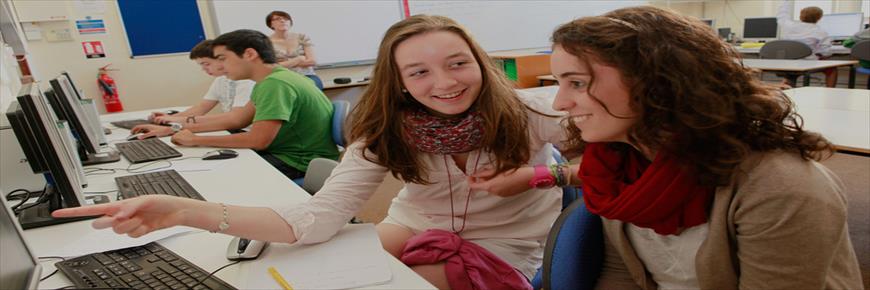
Why Study in Malta?
The small, sunny island of Malta might often be overlooked for its flashier
neighbors, but if you’re looking to study somewhere that is bathed in golden
sun, combines natural beauty with a laid-back lifestyle and an all-round
pleasant atmosphere, then Malta is bound to leave you smiling. Malta is
certainly not a big island – within an hour, you can comfortably cross one side
of the island to the other.
High-quality education with a perfect climate
Malta is one of the smallest countries in the world, that it is comprised of
seven tiny islets in the middle of the Mediterranean Sea. Historically, Malta
existed as a British colony from 1800 to 1964. Therefore, the educational system
of the country was formed by the British model, which operates in all
English-speaking countries and is gradually moving to Europe.
More than half of the Maltese students’ progress from secondary school further
to higher education. Due to the small size of the island, there is not a big
higher system of education in Malta: University of Malta, Collegium Maltese. The
Tourism Institute (The Institute of Tourism Studies) and the College of Arts,
Science and Technology (Malta College of Arts, Sciences and Technology) provide
students with Bachelor’s, Master’s and Doctoral Degrees. However, they have a
good reputation. Larger foreign institutions recognize the diplomas all over
Europe.
University of Malta is small in size, but extremely international way to achieve
higher education. There are constantly educated 9,800 students, including 750
international people from 80 countries. Many of them come for an exchange
program to spend one or two semesters. The university maintains partnerships
with universities in the United States, France and Great Britain, for example.
Malta Academic programs and Universities:
Degrees are awarded in subjects like Arts, Science and Technology, Health
Sciences, Economics, Management, Education, Engineering, Law and more. The
students enroll in full-time or part-time study programs. The courses offered
are relevant and up to date with the needs of the country. The courses are
offered at diploma, undergraduate and postgraduate level. Most Bachelor degree
courses run for three years, while most Masters may be completed in 2 years. In
order to maximize course efficiency, some courses are held once every two years.
Vocational and professional training is also available. Different institutes
teach full-time students or part-time students who also hold a job and require
specialized training.
Universities in Malta
We are contacting presently all the renowned Universities/ colleges offering all
the kind of professional and vocational courses in Malta.
For more details contact us and we will share the details accordingly.
Education and Living Cost for studying in Malta
In Malta there are two types of universities,
private as well as government. Though the government universities have
negligible fee, the fees of private universities are expensive. The cost of
tuition fees varies from university to university and depends upon its location.
Private Universities have an expense of around US $2000. After which the student
has to decide about accommodation. For which students have 4 options.
To rent an apartment (will cost around US $750).
To become a paying guest (will cost around US $500 with food included).
To rent a room in student’s residence (will cost around US $300).
Or to live in a hostel.
Experience shows that cost of study in Malta is living in the country would be
anywhere between Euros 300 to Euros 600 per month. This would cover the daily
expenses, tuition fees and various other expenses. It would also be advisable
that candidates insure themselves with health insurance cover that would cover
health expenses of the student.
Student Visa requirements
Students who require a visa will apply for a Schengen Type D Long Term/National
Visa, or a Schengen Type C Short-Stay Visa.
Students can only apply for Type D visas at Malta’s diplomatic missions or
consular posts. Type D visas are valid for the duration of your studies, and you
cannot extend your stay once in Malta.
Students can only apply for Type C visas in countries where Malta has no
diplomatic post. Type C visas are valid for 90 days, and students must apply for
temporary residence permits once in Malta to continue their studies.
To secure higher education in Malta students need a matriculation certificate,
this is equivalent to the British A-levels and is rewarded after the additional
two years of study.
Apart from scholarship students can apply online directly for admission in any
undergraduate course or a higher education course in any of the relevant
universities of Malta. But the main eligibility is that the student should be a
qualified from a recognized university of their respective home country.
Documents Required for Study VISA in Malta:
Find below all the documents required to obtain the VISA:
Your completed application Form
Your up-to-date and valid passport/travel document.
Two identical color passport photos that must be from the last six months and
adhere to the Embassy’s photographic requirements.
Student Status Letter from your university faculty.
Proof of travel insurance to cover the duration of your visit. The insurance
company will provide you with a certificate to include in your application
Proof of travel plans (flight, ferry or train bookings). The Maltese Embassy
insists that you must have pre-booked your travel before you apply for your
visa.
Proof of accommodation
Proof of financial means. You should have approximately €30 per day available.
Bank statements, wage slips from the last 3 months
Schengen visas require an application fee. This charge can vary, so it is best
to check with the Maltese Embassy to confirm the actual amount and the method of
payment. This can be done through the Embassy website.
A self-addressed special delivery envelope to allow the Embassy to post back
your passport/documents when a decision has been made.
Photocopies of all the documents provided (you need to send both originals and
photocopies).
Note: Additional documentation may be required at the time of the Visa
application